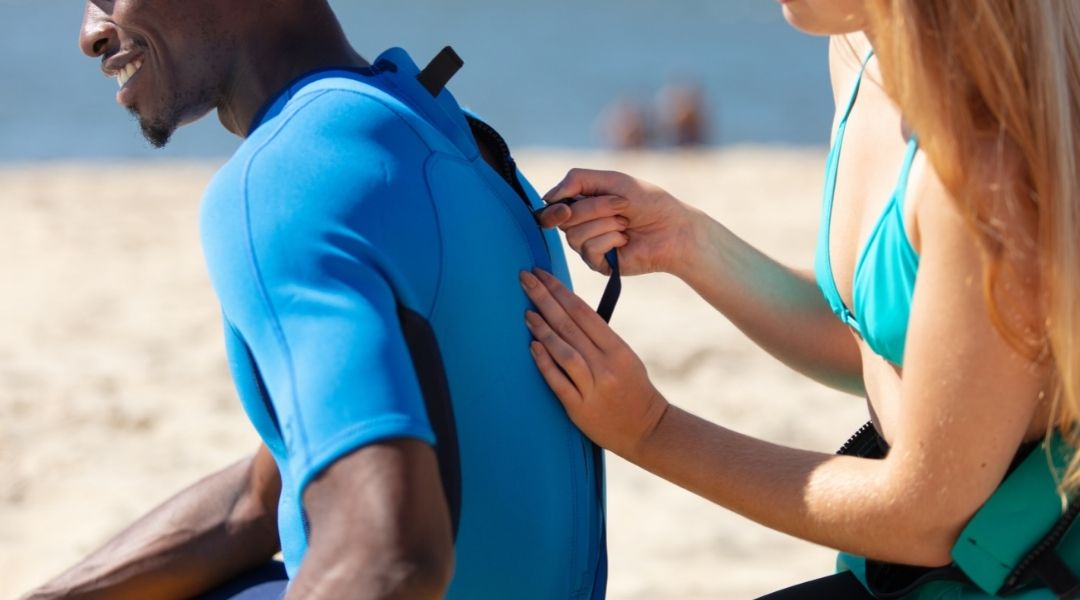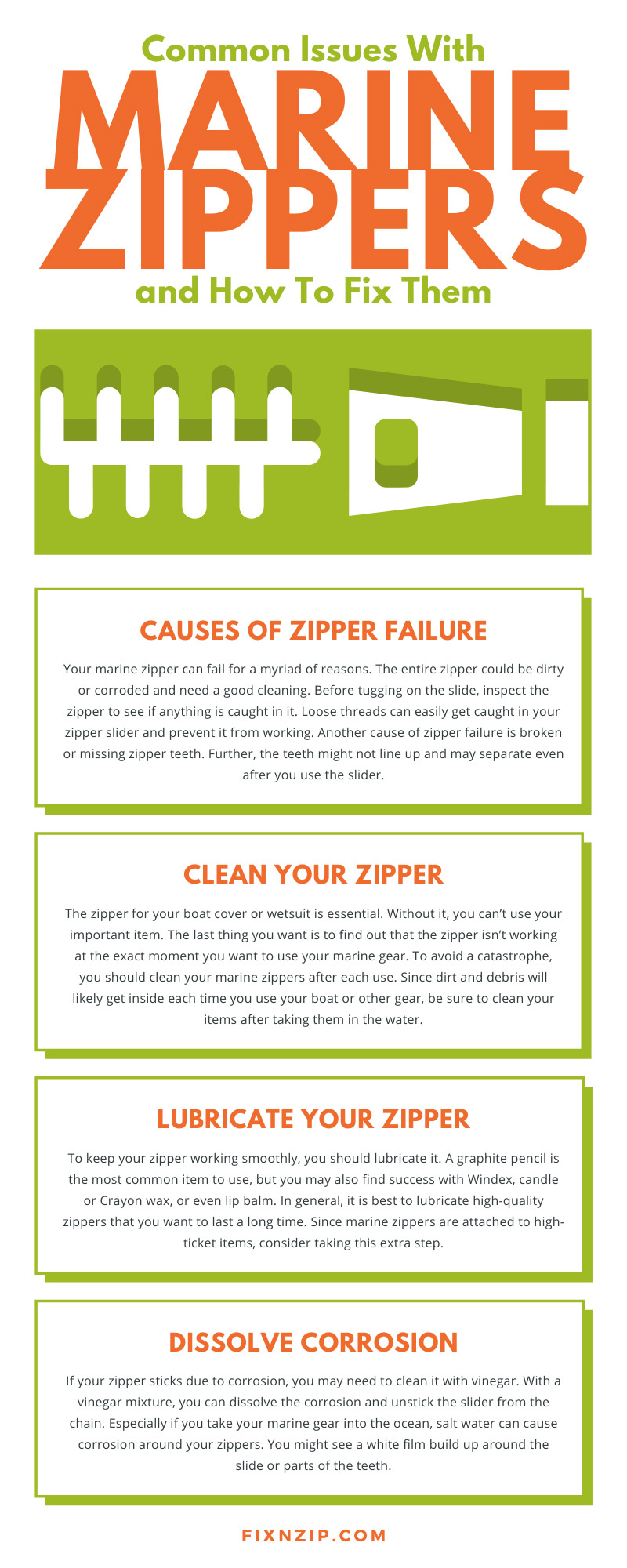
You want your investment in your boat to pay off, but when the zippers on your boat cover begin to stick, you might second guess your decision. Living or working near the water requires as much maintenance out of the water as you get to spend time in it. If you love fishing or diving, it is worth keeping your equipment clean so that you can use it for many years to come.
Proper maintenance means inspecting your zippers. If the zippers on your boat cover or any other marine gear stop working, you won’t be able to use it anymore. Keep reading to discover common issues with marine zippers and how to fix them so you can stay dry no matter where you sail.
Marine equipment includes all sorts of zippers. The main types of marine zippers are boat and wetsuit zippers. You might have one on your boat if it has an enclosure. Fasteners for boat covers must be strong and durable. Your boat zipper should be able to withstand natural elements like weather as well as whatever type of water you’ll have it in most.
Marine equipment often gets dragged through the sand or mud. Natural water isn’t always enough to wash it all away. If you don’t regularly clean your zippers, they can become caked with dirt, which can clog the teeth and prevent the slide from moving across them. Further, water can corrode metal and plastic, causing your zipper to get stuck.
Your marine zipper can fail for a myriad of reasons. The entire zipper could be dirty or corroded and need a good cleaning. Before tugging on the slide, inspect the zipper to see if anything is caught in it. Loose threads can easily get caught in your zipper slider and prevent it from working. Another cause of zipper failure is broken or missing zipper teeth. Further, the teeth might not line up and may separate even after you use the slider.
To fix a zipper, it can help to know how they work, and that requires understanding the different parts of a zipper. Though seemingly simple, zippers are engineered from several parts. If one piece isn’t working correctly, the whole thing stops working. The six common parts of a zipper include:
The two most common zipper materials are metal and plastic. For marine equipment, plastic is better because water corrodes metal. If you have a metal slider on metal teeth, they are likely to fuse together once water hits them—especially salt water. You may also enjoy nylon coil zippers because they are flexible. Since marine equipment is costly, invest in products designed to last a long time no matter how well you maintain them.
The zipper for your boat cover or wetsuit is essential. Without it, you can’t use your important item. The last thing you want is to find out that the zipper isn’t working at the exact moment you want to use your marine gear. To avoid a catastrophe, you should clean your marine zippers after each use. Since dirt and debris will likely get inside each time you use your boat or other gear, be sure to clean your items after taking them in the water. You can avoid mildew, corrosion, and pests if you stay on top of maintenance.
To keep your zipper working smoothly, you should lubricate it. A graphite pencil is the most common item to use, but you may also find success with Windex, candle or Crayon wax, or even lip balm. In general, it is best to lubricate high-quality zippers that you want to last a long time. Since marine zippers are attached to high-ticket items, consider taking this extra step.
Pro Tip: Avoid lubricants that contain silicone. Silicone lubricants may attract particles like sand and dirt to your zipper, which can stick in the teeth and clog them.
If your zipper sticks due to corrosion, you may need to clean it with vinegar. With a vinegar mixture, you can dissolve the corrosion and unstick the slider from the chain. Especially if you take your marine gear into the ocean, salt water can cause corrosion around your zippers. You might see a white film build up around the slide or parts of the teeth.
Sometimes, all the cleaning in the world isn’t enough to keep your zipper working. If you neglect zipper care for too long, you may need to replace your zipper. For instance, if the pull comes off or the slider breaks in any other way, you may need to replace your zipper. You may also need a replacement if the teeth break.
When it comes to marine zipper replacement, you have many options. How you do it may depend on your level of expertise. Skilled sewers can cut out the existing zipper and sew in a new one with a sewing machine or by hand. An easier method is to use no-sew zipper repair parts that allow you to simply attach a FixNZip as soon as you notice your zipper isn’t working.
If you own a boat, it is important to know about common issues with marine zippers and how to fix them. You never know when damage could cause your equipment to stop working. Having a plan in place for when disaster strikes is the best way to stay prepared. No matter what happens to your zippers, the FixNZip can solve it. Simply attach it to your current zipper and use it like a regular slider. Shop our online store to get yours today.

